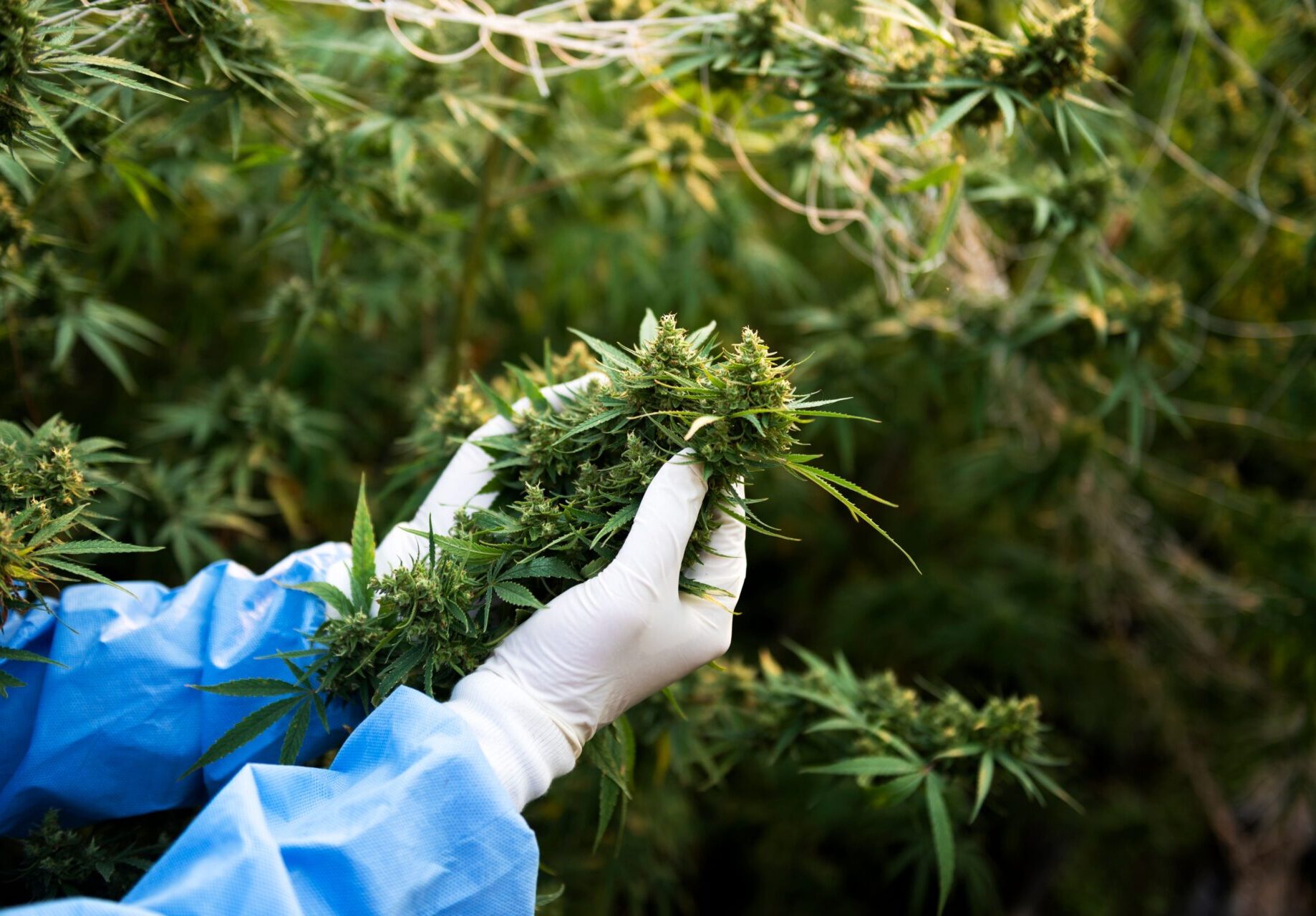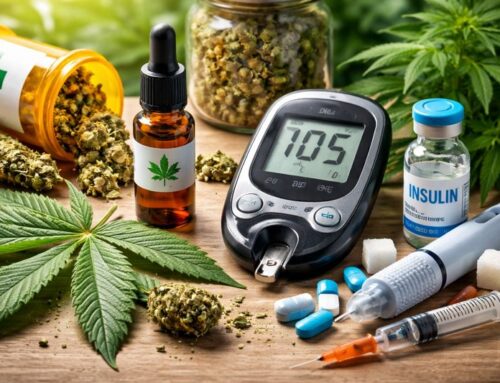Two cannabis compounds that have recently gained popularity are HHC vs Delta 9 THC. While both are cannabinoids that engage with the body’s endocannabinoid system, HHC and Delta 9 THC are not the same. Differentiating the two can assist you in determining what suits you best. Some users prefer a milder, more consistent experience, while others may desire something more potent and variable.
What is HHC?
HHC (Hexahydrocannabinol) is a cannabinoid derived from THC (Tetrahydrocannabinol) through a process called hydrogenation, where hydrogen atoms are added to the THC molecule. HHC does not occur in large amounts in cannabis plants naturally. Instead, it is typically synthesized in the lab using Delta 9 or Delta 8 THC as the starting material. This hydrogenation process makes HHC more stable, giving it a longer shelf life and making it less likely to degrade from heat and light.
A slight change in its chemical structure affects HHC’s properties. HHC is considered a hemp product because to make a large amount of HHC, it would have to be artificially produced from hemp. Understanding this difference is essential for knowing how HHC is legally classified.
The Process of HHC Manufacture
HHC is made using a method known as hydrogenation, which is also common in the food sector. Hydrogenation of THC entails exposing it to hydrogen gas under high pressure, which results in the breaking of the double bond in Delta 9 THC in addition to the incorporation of two hydrogen atoms.
The resultant modification permits improved structural stability while making it milder compared to Delta 9 THC. This enhances longevity for HHC products and makes the compound less reactive over time.
Uses and Effects of HHC
HHC provides a gentle and uplifting high, making it a popular choice for daytime use. It offers calming effects without strong sedation, leading to mild euphoria and less stress. Many people prefer HHC in focus-demanding situations.
Since HHC is less potent than Delta 9 THC, it appeals to those who want to get used to cannabis without strong effects. HHC is becoming more common in edibles, vapes, and oils.
What Is Delta 9 THC?
The most well-known cannabinoid is Delta 9 THC, and it is the main reason cannabis makes you feel high. You can find it in large amounts in marijuana plants, while hemp plants contain only small amounts. Researchers have studied it for many years, and it is the standard used to measure the effects and strength of other cannabinoids.
Delta 9 THC has a specific molecular structure with a double-bonded carbon at the ninth position. This structure is what makes it psychoactive. It strongly affects the brain’s receptors, especially the CB1 receptors that control mood, memory, pain, and perception.
Natural Occurrence in Cannabis
Delta 9 THC is an example of a cannabinoid that can be found lab-free; it naturally exists in the cannabis plant. Oil extracted from marijuana plants has the highest concentration of Delta 9 THC. In contrast, it is found in a minimal concentration in hemp plants. The 2018 Farm Bill allows hemp cultivation as long as the THC content does not exceed 0.3 percent by dry weight, which makes the substance legally recognized.
Delta 9 THC has a reputation as being one of the most accessible cannabis products due to increased demand and fewer restrictions in places where its sale is legalized. Its overwhelming absence in other areas is due to greater legal limitations.
Common Uses and Effects of Delta 9 THC
In most states, Delta 9 THC is widely available, and users consume it for both recreational and medicinal purposes. Its unique ability to provide extreme euphoria and altered appetite equally excites and frightens users. In contrast, medical users seek relief from chronic pain, nausea, muscle spasms, and appetite loss.
Unlike with other cannabis products, products claiming to contain Delta 9 tend to be diluted with cheaper ingredients aimed at maximizing profit. Products often contain substances that can heighten dose-dependent side effects such as dry mouth, increased heart rate, anxiety, and paranoia. New users and those sensitive to THC are generally advised to take small amounts.
Key Differences Between HHC vs Delta 9 THC
Chemical Structure and Composition
The main difference between the substances is their chemical structure. Delta 9 THC’s chemical structure includes a double bond, which fuels its psychoactive properties. HHC, however, has gone through a process of hydrogenation where the double bond is replaced with hydrogen atoms. This small change leads to a different interaction in the body and milder effects.
The altered molecular structure of HHC is more stable and changes how HHC binds with the cannabinoid receptors. Although all compounds interact with the endocannabinoid system, HHC interacts more weakly and smoothly, making the experience less direct.
Potency and Psychoactive Effects
HHC is less potent than delta 9 THC, making delta 9 THC more effective in strength and speed, with more cerebral effects. In contrast, HHC offers mellow effects and a slower onset, appealing to those who find Delta 9 too intense. Many users mix the two for Delta 9’s potency and HHC’s clarity.
Duration and Comedown
The effects of both cannabinoids may last several hours and vary according to the method of consumption. Compared to vaping and smoking, edibles are known to have longer-lasting effects. Comedown from HHC also tends to be smoother than most cannabinoids. At the same time, HHC is noted to have more gradual effects.
As described above, HHC benefits those who prefer to avoid severe crashes and next-day sleepiness. This helps support the label of HHC being more functional as it allows for easier daily consumption.
Benefits of HHC and Delta 9 THC
HHC and Delta 9 offer distinct benefits. Delta 9 is more potent, providing effective relief for pain, appetite suppression, and depression symptoms, but it has more intense side effects. In contrast, HHC has greater therapeutic benefits, milder side effects, and greater chemical stability, making it easier to use discreetly in public or work settings.
Legal Status and Accessibility
Both compounds face legality issues. Delta 9 THC is only legal in states with cannabis legislation and remains federally illegal outside those areas unless derived from hemp and under 0.3%.
HHC has a broader legal scope as a hemp derivative and is not outright banned. It may qualify for legal status under the 2018 Farm Bill, but its legality can vary by state.
Final Thoughts: Choosing Between HHC and Delta 9 THC
The choice between HHC and Delta 9 depends on the desired experience. For an intense high, Delta 9 is the better option, especially for recreational use or medical purposes. If you’re looking for a smoother, more subtle experience, HHC may be preferable, particularly if it’s federally legal.
Understanding the differences between Delta 9 and HHC helps both experienced and new cannabis users make informed choices. Pay attention to how your body reacts, and start with a low dosage and gradually increase as needed.
FAQs
Can HHC or Delta 9 THC be found in regular cannabis flower?
Delta 9 THC is naturally present in cannabis flower, especially in marijuana strains, and is responsible for the classic psychoactive effects of weed. HHC, however, is not commonly found in natural cannabis flower and is typically created in a lab from other cannabinoids like Delta 8 or Delta 9.
Is it legal to grow weed at home if I want access to HHC or Delta 9 THC?
The legality of growing weed at home depends on your state laws. In states like Connecticut, home cultivation is permitted under certain conditions for medical marijuana patients. However, while you can grow cannabis flower containing Delta 9 THC, HHC is usually manufactured and not something you can cultivate directly.
Can medical marijuana help with IBS, and which is better: HHC or Delta 9 THC?
Medical marijuana for IBS may offer symptom relief such as reduced inflammation and abdominal discomfort. Delta 9 THC is more commonly used and researched for such purposes. HHC might also offer therapeutic effects but is less studied. Always consult a healthcare provider before choosing between HHC and Delta 9 THC for medical use.
How can I get a Medical Marijuana Card in Connecticut to use Delta 9 THC legally?
To obtain a Medical Marijuana Card in Connecticut, you must be diagnosed with a qualifying condition (such as IBS), get a certification from a registered physician, and apply through the state's Department of Consumer Protection. This card allows access to medical-grade cannabis flower and Delta 9 THC products legally.
Which is safer for new weed users: HHC or Delta 9 THC?
For those new to weed, HHC is often considered a gentler introduction due to its milder psychoactive effects compared to Delta 9 THC. It can provide mood-lifting benefits with a lower risk of anxiety or paranoia. However, both should be used with caution, starting with small doses.





